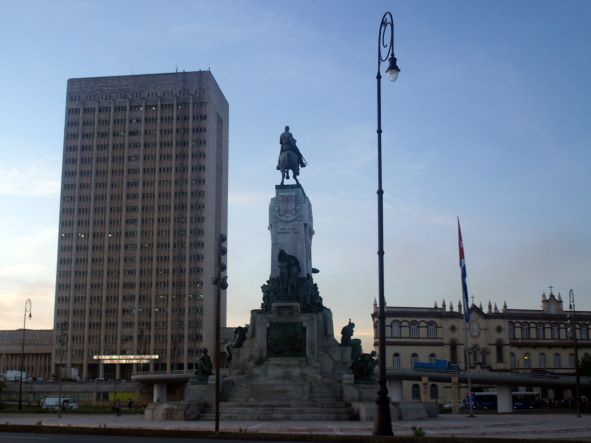According to data recently published by the National Office of Information and Statistics (ONEI), external health consultations in Cuba dropped 25% in 2020. The figure was the lowest since 2014. This data reflects a reality similar to that of the rest of the world during the first year of the Covid-19 pandemic, with the only difference that, in Cuba, coronavirus cases did not skyrocket until 2021. According to official reports from the Ministry of Public Health (MINSAP), the pandemic was largely under control in 2020.
Cuban authorities announced the first three confirmed cases of Covid-19 on March 11, 2020; three Italian tourists. The next day, the first case of a Cuban citizen, who had arrived in the country from the Italian city of Milan, was confirmed.
Despite the detection of these cases and others in the following days, the Cuban state company Havanatur encouraged foreign tourists to visit the island, even as the spread of Covid-19 spawned the prohibition of flights to different destinations around the world, and tourism restrictions.
Being forced to shut down borders and forgo the golden goose of tourism, the Cuban government decided to take advantage of the other opportunity offered by the pandemic: the reactivation of the export of its medical services, which it has recognized as its main source of revenue.
While sending health personnel to other countries and campaigning for a Nobel Peace Prize for the Henry Reeves Brigade, the regime posted numbers of infections and deaths that were relatively low compared to those around the rest of the world.
In May 2020, when the regime endorsed awarding the Nobel Prize to its medical missions, it had already sent 25 brigades, made up of more than 2,000 doctors and other health professionals, abroad.
During that year only 12,056 positive cases were confirmed in Cuba, for an average of just over 1,200 per month, or about 40 cases per day.
If the MINSAP's daily reports reflected reality, why were external consultations down 25%?
The data published by the state-owned ONEI show that either the MINSAP reports citing low numbers of infections were false, or the regime sacrificed the external consultations of Cubans to send health professionals abroad, in order to obtain profits (which were not invested in the public health system, as evidenced by the state of the hospitals and polyclinics where Cubans receive medical care), or both.
Whether it is true that the number of Covid-19 cases in 2020 was relatively low, or false, the people of Cuba ended up suffering. In October 2021 several Cubans with chronic illnesses and the relatives of patients with serious illnesses told DIARIO DE CUBA that they had not received follow-up care for cancer, or specialized consultations, in more than a year.
"My husband's mother was diagnosed with Alzheimer's three years ago in Santa Clara, and was told that the geriatrician in Caibarién would be providing her follow-up care. Since the pandemic began, however, the specialist has never seen her, because they?re not scheduling specialized consultations," Lidia, a Cuban resident in Villa Clara, told DIARIO DE CUBA at the time.
In March the director of Cuban television, Armando Arencibia Valhuerdi, who was receiving treatment for terminal chronic renal failure at the Nephrology Service of the Calixto García General Hospital in Havana, complained of the poor condition of the equipment used in his treatment, the shortage of supplies, and a lack of nursing staff.
In a detailed post on Facebook, which was later deleted, Arencibia criticized that the hospital lacked "iron, erythropoietin, heparin, gauze and cotton swabs, syringes of a certain size, sterile cloths (almost never available), tape, and other medications and antibiotics. Gloves are recycled, and they are given a single pair for the complete treatment of each patient, including the washing of the machine, which violates absolutely all the protocols established for hemodialysis in Cuba and all around the world."
According to the publication, there were not enough nurses in the Calixto hemodialysis service, and treatment times were abbreviated.
"Sooner rather than later, all the patients in this service will be receiving deficient dialysis; the calculations of the dialysis time that each patient needs are done for a reason," he said.
Arencibia decided to turn to social media to complain about the situation instead of going to the MINSAP's Department of Public Attention because "I tried that route more than a year ago, and I haven't received a response," he explained.
